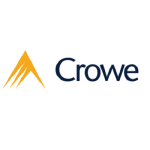Given the evolving international tax landscape, it is not surprising that the Inland Revenue Authority of Singapore (IRAS) has stepped forward to issue its 6th edition of the Singapore Transfer Pricing Guidelines (TP Guidelines) on August 10 2021.
The notable changes introduced by these guidelines are summarised below.
Clarification on TP documentation requirements
A set of frequently asked questions (FAQs) on transfer pricing (TP) documentation has been added in Section 6 of the TP Guidelines. While Section 6 of the TP Guidelines provides taxpayers with guidance on what information should be included in the TP documentation, the answers provided to the FAQs outline IRAS’ expectation on the quality of such documentation. For example, IRAS notes that merely “providing a generic description of the business” is not sufficient. It is necessary to describe the value chain and how the Singapore company is involved in and contributes to the value chain.
Furthermore, IRAS notes that it is useful to include reasons for why the Singapore taxpayer entered into the transaction. This is consistent with the overall observation that, increasingly, it is not enough to just show that a transaction is at arm’s length. Rather, the focus is increasingly on why the transaction was entered into by the related parties and that third parties would have structured the transaction with similar commercial and financial terms.
TP adjustment, surcharges and remission
Additional clarity has been provided on when TP adjustments will be made by the IRAS, along with surcharges and penalties. In addition, a remission for the surcharge has also been included.
IRAS will make a TP adjustment when the Singapore taxpayer does not comply with the arm’s-length principle. In showing that a transaction is consistent with arm’s length standards, the Singapore taxpayer needs to show that there is a commercial rationale for undertaking the transaction and that transfer price has been determined by taking into account options realistically available to both parties.
Where a TP adjustment is made, the IRAS will also compute a TP surcharge, which has been set to be 5% of the TP adjustment, irrespective of whether additional tax is likely to be payable. The application of this surcharge will be burdensome for taxpayers that may have a business loss or carry forward losses or are operating under a tax incentive. This surcharge will apply even if the taxpayer voluntarily makes an upward adjustment by way for a self- initiated retrospective upward adjustment.
The new guidelines provide for a full or partial remission of these surcharges arising from a TP audit or review. Any possibility of remission highly depends on how cooperative a taxpayer has been, whether the taxpayer has maintained proper TP documentation and whether the taxpayer has a good compliance record of prompt submission of tax returns and payment of taxes by the relevant due dates. Thus, even if IRAS may not agree on the transfer price, having good TP documentation and compliance record will ensure that there is some degree of penalty protection.
If a taxpayer makes self-initiated retrospective upward adjustments under a voluntary disclosure of non-arm’s length related party transactions, a full or partial remission of the surcharge may be granted depending on whether the taxpayer has met certain conditions.
Cost contribution arrangements
A new section on cost contribution arrangements (CCA) has been added. Given Singapore’s progress as a hub for innovation and the number of companies in Singapore that have CCAs in place, such guidance is timely and welcomed. Much of the guidance on CCAs follows the broad guidance as detailed in the OECD Transfer Pricing Guidelines. However, it is noted that, while the OECD Transfer Pricing Guidelines has a dedicated chapter on intangibles, which includes CCAs, the IRAS has only focused on CCAs without the required preamble on intangibles in general.
Other observations
In addition to the above key developments, we would like to highlight the following minor but important changes:
Additional guidance has been provided on the arbitration process where a relevant tax treaty provides for such recourse. A taxpayer may request to resolve a TP dispute via arbitration if the dispute has reached a stalemate under the mutual agreement procedure (MAP) process provided for under the relevant tax treaty. This should encourage taxpayers to actively consider MAP as an avenue to resolve disputes.
Amendments to the TP Guidelines have been made to provide guidance on the OECD simplified approach for low value-added intra-group services. Specially, the IRAS has indicated that, even if the intra-group services do not fall within the set of routine support services prescribed in Annexe C of the TP Guidelines, it may be prepared to accept a 5% mark-up on applicable costs provided that the transaction is conducted in line with the OECD Transfer Pricing Guidelines. This is a welcome clarification and will help taxpayers in supporting their services transactions.
IRAS has also embraced and incorporated the guidance provided by the OECD on related party financial transactions other than related party loans. Concepts of cash pooling, hedging, captive insurance, etc. have been included in the TP Guidelines, which are critical for Singapore’s role as a premier financial centre. The IRAS has also outlined the need to determine whether a prima facie loan should be regarded as a loan for tax purposes, or should the loan be regarded as another kind of payment such as capital contribution. The IRAS has also confirmed that interest free loans are not consistent with arm’s-length principles. Thus, taxpayers who have interest free loans should restructure these loans.
The TP consultation programme has formally been renamed as TP audit.
Overall, the TP Guidelines is aligned with the OECD Transfer Pricing Guidelines and this demonstrates that the TP rules set by the IRAS will not deviate from international TP standards.
The continuous revisions to the TP Guidelines provide timely clarity, and a constant reminder to taxpayers on the importance of maintaining TP documentation and adequate TP analysis to demonstrate that related party transactions are in line with the arm’s-length standard.
Sivakumar Saravan
Senior partner, Crowe Singapore
Sowmya Varadharajan
Director, Crowe Singapore













